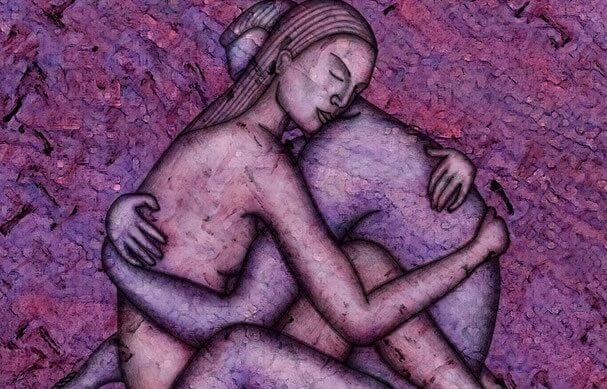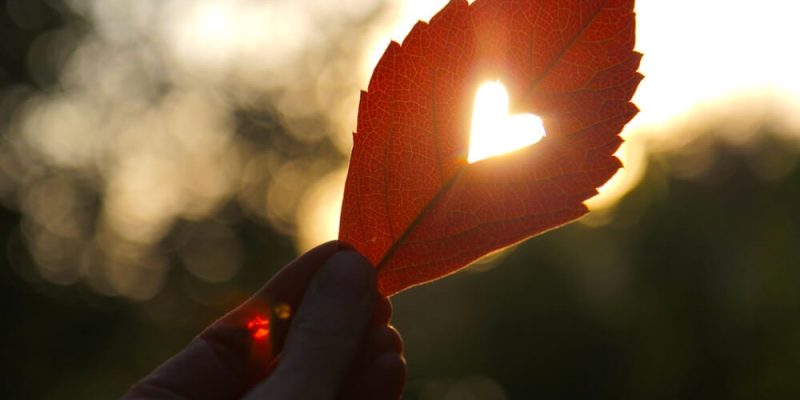Giving thanks is an act that comes from a noble heart, from those who know how to appreciate both the simplicity and complexity of life. Those people who value others’ time and actions, but also appreciate themselves.
Gratitude is one of the most precious assets. It involves acts of kindness, generosity, and recognition. A way of responding to life from love with great regenerative powers.
“Gratitude is the fairest blossom which springs from the soul.”
-Henry Ward Beecher-
The gift of gratitude
Gratitude involves taking the time to consciously appreciate the complexity of life. It’s an excellent way to stop concentrating on negative situations and to focus on everything that’s good, that you appreciate, value, and even simply have by your side.
Gratitude is the gift of those who, despite everything, are able to appreciate what’s given to them. It doesn’t matter if they’re having a bad day, if someone has let them down, or if circumstances have gone against them, those who practice gratitude are able to see the light, even in the darkest of storms. They have a good conscious perception and know how to move away from all kinds of victimization.
In addition, these types of people know how to give thanks for what’s fundamental and transcendental. They know how to differentiate between what’s superfluous and what’s necessary. They know that what’s important isn’t what they own but the time they spend with others and the things they do. In fact, they know how to define what’s worthwhile.
Gratitude and love
Gratitude is an essential aspect of love. Lao-Tzu defined it as ‘the memory of the heart’. It’s a crucial aspect of being happy that removes you from all kinds of limitations and encourages you to grow from within.
There are two ways of giving thanks. One is automatic, a formal thanks that comes from a social norm and that you tend to distribute left, right, and center. For instance, a thank you for an invitation to a dinner or a plea to your child to show gratitude for receiving a gift. It’s the typical courteous thank you.
The other way of saying thank you corresponds to the gratitude that comes from your conscience and your heart. It’s the sincere and authentic kind of ‘thank you’ that expresses how much you value what the other’s done. It demonstrates real recognition and appreciation of them.
Gratitude makes it possible for you to recognize the value of things, others, and yourself. That’s because to thank is, ultimately, to love. In addition, this virtue allows you to establish healthy and deep bonds.
According to research conducted at the University of Georgia (Greece), gratitude is a key ingredient to improving life as a couple. Ted Futris, the co-author of the study, affirmed that feeling appreciated and valued by the partner directly influences the personal perception of the relationship, the interest in it, and the belief that it’ll last.
As you can see, the power of giving thanks is incalculable. By doing so, you value others, your circumstances, and everything you have. On the other hand, by receiving it, you feel appreciated and recognized.
“Nothing is more honorable than a grateful heart.”
-Seneca-

Giving thanks: the key to a happy and healthy life
Gratitude changes the way you see both your life and yourself. Thanks to this virtue, difficult situations that, at other times, you considered to be unbearable, are transformed. Gradually, they become clearer and you can see opportunities to make way for change. In this way, you feel better about yourself and your relationship with the world.
Gratitude fills your heart with joy and allows you to make better decisions, free from diversions. It’s dependent on where you focus your attention. For example, if you adopt a vision of pessimism and scarcity, your entire world will be lacking. However, if you choose to look at the abundance and all the good that surrounds you, your world will be a really different one. Generosity, joy, and happiness will rule.
It’s true that you can’t deny the sufferings and difficulties of life, but neither can you deny the abundance that surrounds you. Gratitude is about learning to be aware of it and stop focusing on the ‘half-empty glass’. For instance, you can start by, each night, being grateful for ten-20 things that have happened to you throughout the day. They don’t have to be astounding, just little things that make you happy to be alive.
Giving thanks is a gift to others and to yourself. Don’t forget. Because, when gratitude becomes a way of life, happiness becomes the norm.
“Gratitude is not only the greatest of virtues, but the parent of all others.”
-Marcus Tullius Cicero-
The post Gratitude Is a Virtue appeared first on Exploring your mind.



















Comments